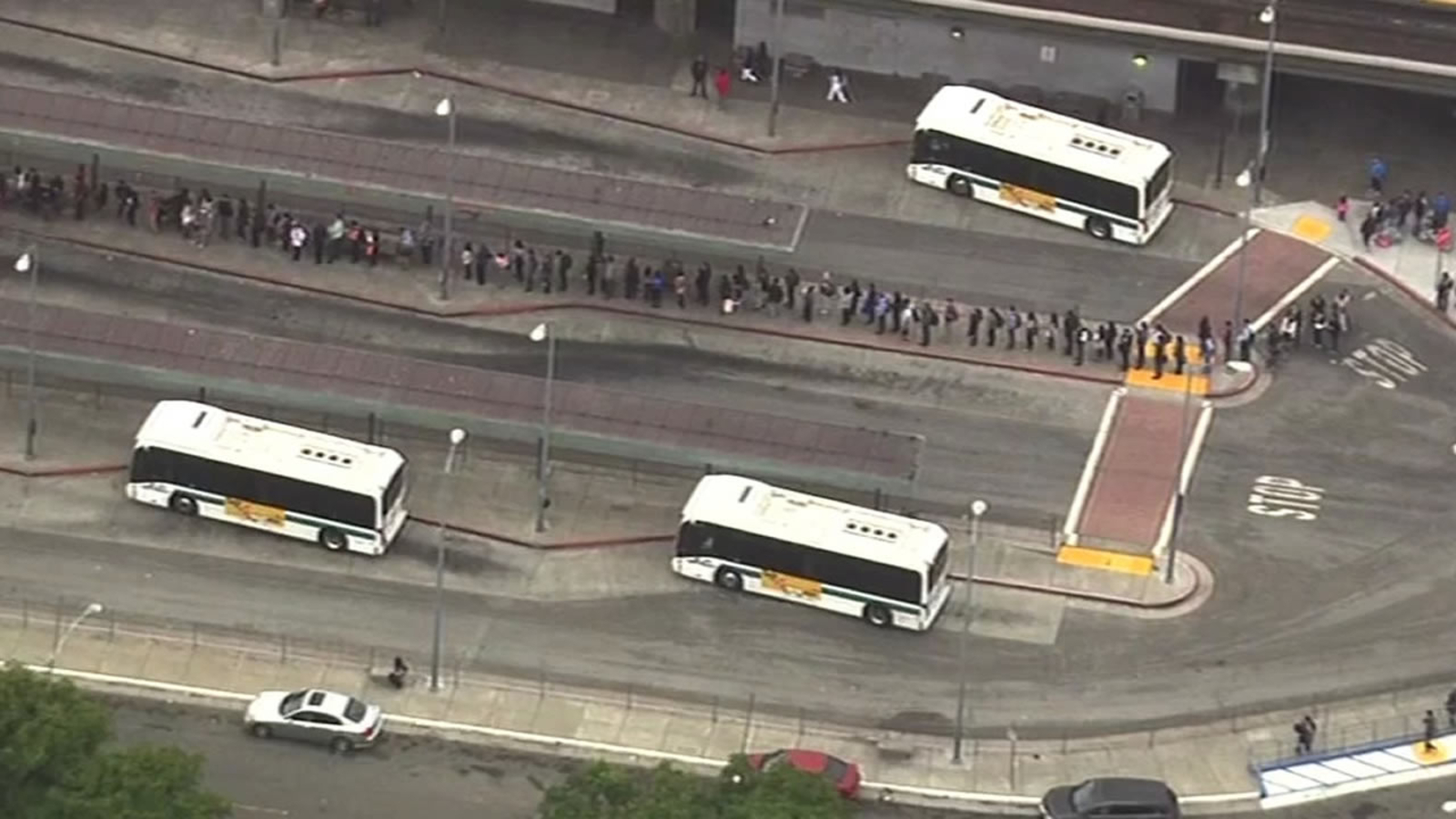Hundreds Stranded After Kogi Train Suffers Technical Issues

Table of Contents
The Kogi Train Incident: A Detailed Account
The incident occurred on the evening of [Insert Date] at approximately [Insert Time] near [Insert Specific Location within Kogi State] on the [Insert Name of Rail Line] railway line. A passenger train, specifically a [Insert Type of Train, e.g., Diesel Multiple Unit], experienced a significant mechanical failure. Initial reports suggest the primary cause of the Kogi train technical issues was [Insert Specific Technical Failure, e.g., a complete engine failure].
- Exact location of the incident within Kogi State: [Insert Precise Location, e.g., near Ajaokuta Steel Complex]
- Time of the initial malfunction: [Insert Time, e.g., 7:45 PM]
- Specific type of technical failure encountered: [Insert Specific Failure, e.g., catastrophic engine seizure]
- Estimated number of passengers affected: [Insert Number, e.g., Approximately 350]
- Any reported injuries among passengers or staff: [Insert Details, e.g., Fortunately, no serious injuries were reported, though several passengers experienced minor scrapes and bruises during the emergency evacuation.]
Impact on Passengers and Travel Disruptions
The immediate experience for the stranded passengers was characterized by significant hardship. Many reported a lack of clear communication from railway authorities regarding the situation and the expected delays. The prolonged wait resulted in food and water shortages, leading to considerable discomfort and anxiety. Furthermore, safety concerns arose due to the lack of adequate security and exposure to the elements for several hours.
The Kogi train technical issues had a ripple effect on the broader rail network. Subsequent train services on the affected line were significantly delayed, causing widespread disruption for commuters and businesses relying on rail transport. The economic impact of the incident is still being assessed, but the disruption to cargo transport and passenger travel is likely to result in substantial losses.
- Passenger accounts of their experiences: "[Insert Quotes from Passengers if available, focusing on the difficulties they faced due to the Kogi train technical issues.]"
- Duration of the delays caused by the incident: [Insert Duration, e.g., Over 8 hours]
- Number of affected train services: [Insert Number, e.g., At least 3]
- Estimates of economic losses: [Insert Estimates, e.g., Early estimates suggest potential losses in the millions of Naira.]
Response and Recovery Efforts
The response to the Kogi train technical issues involved a coordinated effort between various agencies. [Insert Names of Organizations, e.g., The Nigerian Railway Corporation (NRC), the Federal Road Safety Corps (FRSC), and local emergency services] swiftly mobilized rescue operations. Stranded passengers were provided with food, water, and alternative transportation arrangements. An investigation into the root cause of the malfunction is underway. The NRC has also communicated efforts to improve real-time information dissemination to passengers during future incidents.
To prevent similar occurrences of Kogi train technical issues, the NRC is implementing several measures. These include enhanced preventative maintenance programs, more rigorous safety inspections, and investment in updated technology for early detection of potential problems.
- Names of organizations involved in the rescue/recovery efforts: [List organizations]
- Details of the aid provided: [Detail assistance given]
- Timeline of the response efforts: [Provide a timeline]
- Measures being implemented to improve rail safety: [Detail preventative actions]
Addressing Long-Term Concerns: Rail Infrastructure in Kogi State
The Kogi train incident underscores the broader challenges facing rail infrastructure in Kogi State and Nigeria as a whole. [Insert Statistics, e.g., Data suggests a concerning increase in rail-related incidents in the state over the past five years]. This highlights the urgent need for substantial investment in maintenance, upgrades, and improved safety standards across the entire rail network. Stronger regulatory oversight and increased government funding are crucial for addressing these long-term concerns and preventing future occurrences of Kogi train technical issues.
- Statistics on previous rail incidents in the state: [Include relevant data]
- Recommendations for improving rail infrastructure: [Suggest solutions]
- Call for increased government funding for rail maintenance: [Advocate for investment]
Conclusion
The Kogi train incident, resulting from significant Kogi train technical issues, stranded hundreds of passengers, causing widespread disruption and highlighting critical vulnerabilities in Nigeria’s rail system. The incident underscores the need for immediate and sustained improvements in infrastructure maintenance, communication systems, and emergency response protocols. Addressing these underlying issues is paramount to ensuring safer and more reliable rail travel for all passengers. We must demand better safety standards and improved maintenance on Nigeria's railways to prevent similar incidents and ensure safer travel for all. Stay informed about developments in this ongoing situation by following reputable news sources. Let's work together to prevent future occurrences of Kogi train technical issues and make rail travel safer in Nigeria.

Featured Posts
-
 Altitude Afeta Estevao Palmeiras Enfrenta Problema Com Jogador Em Jogo
May 01, 2025
Altitude Afeta Estevao Palmeiras Enfrenta Problema Com Jogador Em Jogo
May 01, 2025 -
 Asparagus Nutrition How This Vegetable Improves Your Health
May 01, 2025
Asparagus Nutrition How This Vegetable Improves Your Health
May 01, 2025 -
 Analysis Duponts Masterclass In Frances Victory Over Italy
May 01, 2025
Analysis Duponts Masterclass In Frances Victory Over Italy
May 01, 2025 -
 Sdr Azad Kshmyr Brtanwy Parlymnt Ka Kshmyr Ke Msyle Pr Wadh Mwqf
May 01, 2025
Sdr Azad Kshmyr Brtanwy Parlymnt Ka Kshmyr Ke Msyle Pr Wadh Mwqf
May 01, 2025 -
 Jwanka Walnsr Arqam Mthyrt Llqlq
May 01, 2025
Jwanka Walnsr Arqam Mthyrt Llqlq
May 01, 2025
